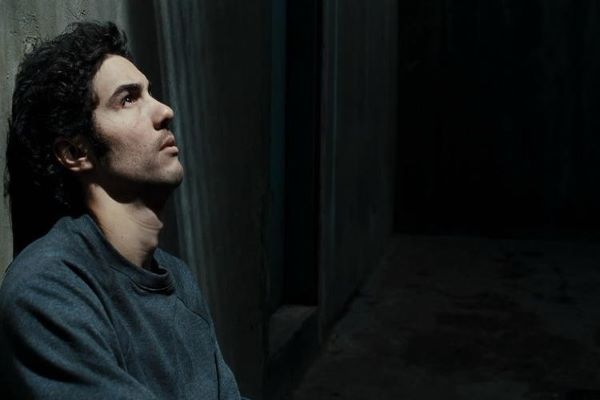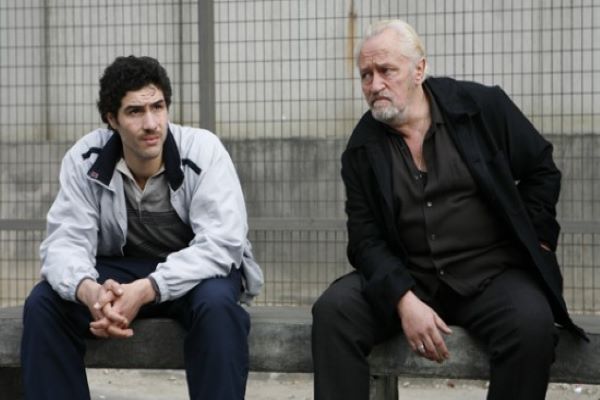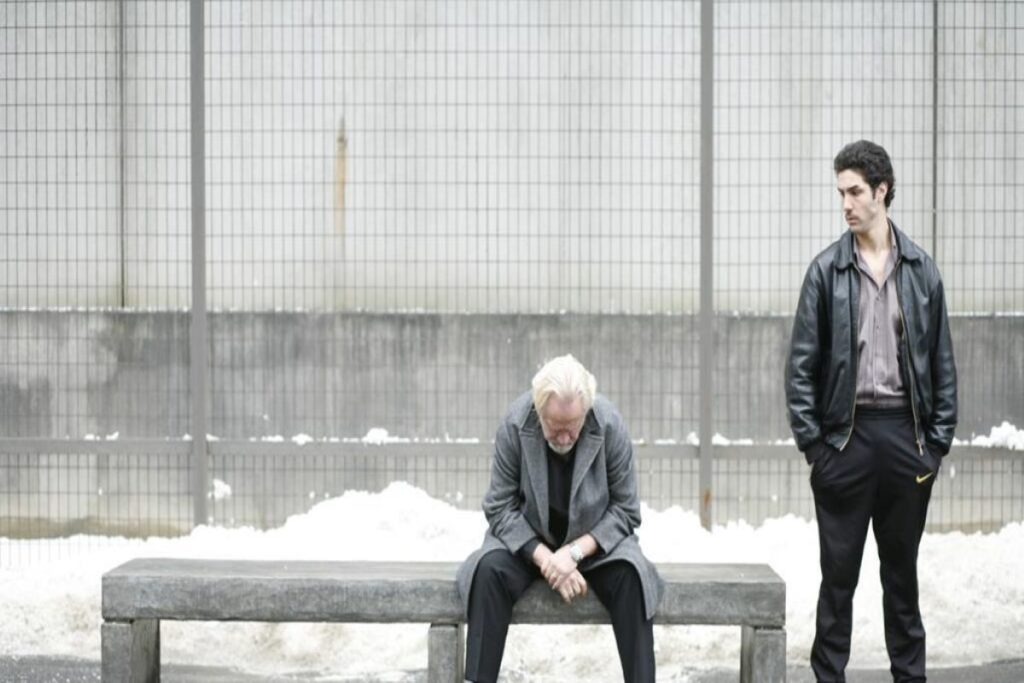French filmmaker Jacques Audiard gives identity to those who are neglected and ignored in modern France in his prison crime drama film A Prophet. The success, progress, and glory of modern France can be attributed to not only the French people but also the immigrants such as Africans and Arabians. However, their contributions are often ignored and they are treated with contempt as inferior or ‘dirty’ citizens. In popular culture or films, they are not portrayed as heroes. In this film, Filmmaker Audiard strongly attempts to build an image for them. He shows that an illiterate person can learn to read, write, and elevate himself even in a horrendous place like a prison. A Prophet brutally but truly shows that only the fittest can survive in the most hostile and violent place.
Malik El-Djebena (Tahar Rahim), a nineteen-year-old Algerian-origin Frenchman, is arrested and sentenced to six years imprisonment on the charge of attacking police officials. However, in prison, he denies the charge and claims himself innocent. He does not have any family members or acquaintances both inside and outside the prison. The prison is mainly divided into two groups – the Corsicans and the Muslims. Initially, Malik does not belong to either of them. Corsican mafia don Cesar Luciani (Niels Arestrup) forces Malik to murder a fellow Arabian-origin prisoner named Reyeb with a razor blade when he gets to hear a whispering conversation between the two. Reluctantly, Malik kills Reyeb (Hichem Yacoubi) with the razor blade hidden in his mouth. After this gruesome murder, Malik comes under Cesar’s protection inside the prison and starts working for the Corsicans much like a servant even though he is insulted and treated with contempt for his Arabian origin. When most of the Corsican prisoners are repatriated, Cesar is forced to give more responsibility to Malik. For his good behavior in prison, Malik is rewarded with daytime furloughs. Having learned the Corsican language secretly, Malik runs Cesar’s underworld empire outside the prison.

In prison, Malik befriends a fellow Muslim Ryad (Adel Bencherif) who teaches him how to read and write. Ryad also teaches him about Arabian tradition and culture. Because of his testicular cancer, Ryad is released early from prison. Along with a prison drug dealer named Jordi and Ryad, Malik forms a drug-trafficking business. Cesar comes to know that Malik now lives off him running the drug-trafficking business outside prison taking advantage of his furloughs. He punishes him by attacking his right eye with a spoon. Cesar sends him to Marseille to meet Brahim Lattrache who is involved in a deal between Cesar and the Italian Mafia Lingherris. Malik saves Brahim’s life by predicting deer passing through the road when he sees a deer-warning signboard. Even though Brahim is much bitter toward the Corsicans and comes to know that Malik is the killer of Reyeb, he refers to Malik as a prophet and decides to do business with him instead of the Corsicans.
Malik and his gang assassinate the bodyguards of another Corsican mafia don Jacky Marcaggi and tell him that they were instructed to eliminate his men by none other than Cesar himself. Jacky Marcaggi uses his influence to eliminate most of Cesar’s men. Malik now belongs to the Muslim group and is transferred to a solitary cell without Cesar’s reach. When Cesar comes to pursue him, two Muslim prisoners beat him. Cesar is almost alone now in prison without much influence or power. Ryad’s cancer deteriorates and he has only six months to live. He convinces Malik to take care of his wife and son when he is gone. Malik finally completes his jail term and is released from prison. When he comes out of prison, he sees that Ryad’s wife and son are already waiting for him. Malik heads to Ryad’s house along with his wife and son escorted by the convoy of Muslim group members.
The idea of a prison crime film came to director Jacques Audiard’s mind when he personally visited a prison for the screening of one of his films. The situation of prison cells chilled his spine. When he read Abdel Raouf Dafri’s story about Malik, he was fascinated by the fact that even prison can be a place for reading, writing, and elevation. When Malik enters the prison, he is illiterate. However, he slowly learns how to read and write and becomes the shadow of Cesar. Later, he himself forms his own business with Ryad and Jordi. Cesar loses his men, power, and influence but Malik keeps prospering and forms a strong Muslim group. When he completes his sentence, he is met by Ryad’s wife and son and escorted by a convoy full of his group members. When he first enters the prison, he does not have any family members or acquaintances. However, when he exits, he is surrounded by many. Filmmaker Audiard shows how a horrific place like a prison can be a connecting point for a person. Life just does not stop even at the worst juncture and goes on.

There is no doubt that Malik’s life takes a U-turn from the prison. He becomes literate and starts earning his livelihood. However, the bitter truth cannot be denied that the situation compels him to elevate himself. Cesar clearly tells him that he will be killed if he does not kill Reyeb. Circumstances and destiny make him a murderer. Jacques Audiard establishes Darwin’s theory that only the fittest can survive. So, Malik will perish if he does not kill Reyeb. No matter how badly he is shaken or laments, he is forced to execute Cesar’s order. The current situation makes him form a drug business for survival. Multiple times, humans are servants of circumstances and destiny.
In A Prophet, Filmmaker Audiard strongly tries to create an image and identity of those who don’t have that in modern French society and films. They are neglected, ignored, and treated with contempt. Their contributions are denied. It is very much prevalent not only in France but all over the world. In this film, Jacques Audiard raises a strong voice against that mentality and perception. The modern history of France not only belongs to the French people but also to the Africans, Arabians, and other immigrants. In many countries, the basic human rights of minorities are completely denied. They are treated like 2nd class citizens. Director Audiard shows through this film that they can emerge as victors no matter how badly they are downtrodden.
Like many other films or artworks, A Prophet also shows that the axis of power changes. It does not remain static. Today’s powerful are tomorrow’s powerless. So, all the oppression and tortures come to an end someday and when it actually happens, the tyrant has to pay the price. Power without morality and principle is fragile and futile. When Cesar loses his men, he ends up being beaten by two Muslims. He falls down on the prison floor where he always would stand up as the boss. Such is the world and such is life.
The screenplay of A Prophet, which is based on a story by Abdel Raouf Dafri and written by Audiard, Dafri, Thomas Bidegain, and Nicolas Peufaillit, is detailed and realistically portrays the horrific situations of French prisons. Stephane Fontaine’s handheld dynamic cinematography captures the crime and violence inside the prison. The scenes are filmed so efficiently and realistically that the viewers get terrified by this crime thriller. The actual conditions of French prisons are revealed to the world. Like cinematography, the editing by Juliette Welfling is also dynamic and fast-paced. Niels Arestrup’s portrayal of Cesar reminds the viewers of the legendary Marlon Brando in Francis Ford Coppola’s The Godfather. Newcomer Tahar Rahim as Malik is promising and brilliantly portrays Malik’s vulnerability as well as aggressiveness. A Prophet won the BAFTA Award for Best Film Not in the English Language at the 63rd BAFTA Awards. It was nominated for Best Foreign Language Film at the 82nd Academy Awards. It also won the prestigious Grand Prix at the 2009 Cannes Film Festival.

Thanks for sharing!